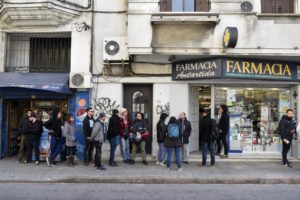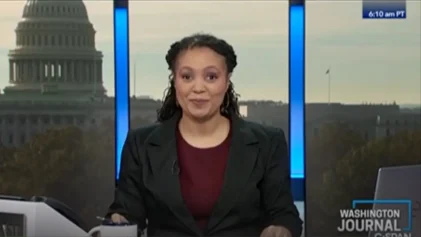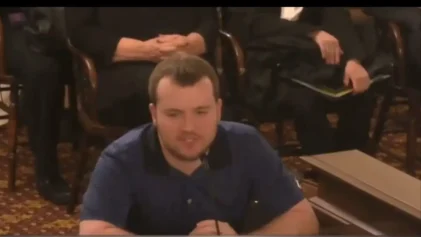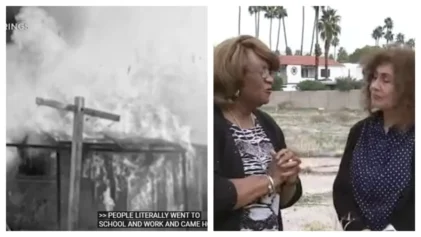
People line up outside a pharmacy selling legal marijuana in downtown Montevideo, Uruguay. (AP Photo/Matilde Campodonico)
MONTEVIDEO, Uruguay (AP) — Marijuana aficionados lined up at pharmacies across Uruguay on Wednesday to be among the first in the South American nation to legally buy pot as a law regulating its sale took full effect.
Customers sniffed pungent green buds and grinned as they showed off blue-and-white envelopes containing the substance, which is now available as part a 2013 measure that made Uruguay the first nation to legalize a pot market covering the entire chain from plants to purchase.
Santiago Pinatares, a 35-year-old construction worker, braved freezing temperatures in the capital, Montevideo, as he waited outside one of the 16 pharmacies authorized to sell marijuana. He said he has been smoking pot since age 14 but had no choice but to buy on the black market until now.
“To be able to buy it legally is a huge breakthrough,” he told The Associated Press. “Uruguay is at the forefront of the world on this.”
Some customers declined to comment saying they didn’t want their families or employers to know they were buying marijuana.
Authorities say nearly 5,000 people have registered as consumers allowing them to buy up to 40 grams per month. About two-thirds of them live in Montevideo.
The price is set at the equivalent of $1.30 per gram, with 90 cents of that going to the two businesses chosen to cultivate marijuana.
The rest is split between the pharmacies and the government, which will use its share to fund prevention programs. The marijuana comes in packages emblazoned with a seal of authenticity and warnings about the drug’s effects.
Uruguay became the first country to regulate a national marijuana marketplace in an effort to fight rising homicide and crime rates associated with drug trafficking.
The law also lets licensed individuals grow marijuana plants and form clubs.
“There was a lot of hard work to finally come to this day,” Drug czar Diego Olivera said. “It is a challenging and complex project, and today we have taken a step forward.”


